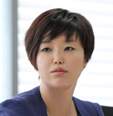The situation in the Middle East is experiencing a new wave of change as the Israel-Hamas ceasefire agreement has been reached under the second Trump administration. This development presents important opportunities for South Korea’s Middle East policy in 2025. While a country-specific approach should form the foundation of any effective Middle East policy, two key priorities should guide its overall direction. First, strengthening cooperation in the defense industry and nuclear power plant development with Gulf countries such as Saudi Arabia and the UAE. Second, participating in post-war reconstruction efforts following the Israel-Hamas war, including increasing humanitarian support for the Palestinian Authority.
South Korea’s defense industry and nuclear power industry have gained international competitiveness, thanks to the country’s efforts to prioritize these sectors strategically. These industries are also crucial for Gulf countries as they aim for self-reliance and seek technological advancement in response to the U.S. withdrawal from the Middle East and Iran’s expansionist policy. In this context, South Korea is in a favorable position to pursue practical cooperation by leveraging intersections of mutual interest between both parties. Moreover, contributing to the post-war reconstruction of the Gaza Strip is an important issue where both Korea and Middle Eastern countries can fulfill responsibilities befitting their national stature and share international leadership. Most importantly, the regional order is rapidly being restructured following the Israel-Hamas war. With Israel’s extensive military operations and the inauguration of the second Trump administration, the Iranian and Shiite factions are temporarily subdued, while the role of Arab Sunni forces centered around the Gulf states and Israel is becoming more prominent. In this context, Korea stands at a critical juncture to seize strategic opportunities and enhance its diplomatic presence.
The Middle East, especially the Gulf countries, is South Korea’s largest oil supplier and a lucrative export market with strong purchasing power. South Korea provides essential technology and development models for the industrial diversification, social liberalization, and diplomatic and security reforms that these countries are committed to. Notably, South Korea has recently become the world’s ninth-largest arms exporter, and the Middle East is a major market, accounting for one-third of the global arms trade. South Korean tanks and artillery have been introduced through joint training exercises with the UAE and Qatar. The abolition of tariffs on arms exports, following the signing of the Korea-Gulf Cooperation Council (GCC) Free Trade Agreement (FTA) and the Comprehensive Economic Partnership Agreement (CEPA) with the UAE in 2024, is expected to expand defense cooperation with the Gulf countries. Furthermore, building on the success of the Barakah nuclear power plant in the UAE, South Korea has been pursuing nuclear power plant projects in Saudi Arabia and Egypt, and the 2025 Korea-U.S. nuclear power export agreement (KORUS) is expected to accelerate its entry into the Middle Eastern nuclear market.
Meanwhile, although South Korea has increased its aid and humanitarian support to the Middle East, the scale is still less than half of the average provided by the OECD’s Development Assistance Committee. Despite predictions that South Korea’s GDP per capita will surpass Japan’s again this year, its contributions seem insufficient to match its economic power and global status. South Korea’s Official Development Assistance (ODA) is mainly focused on Southeast Asian countries and is extended to the Middle East primarily in the form of emergency relief during crises. In contrast, Japan has established substantive cooperative relationships with Middle Eastern countries since the 1970s through economic cooperation projects and aid policies, along with active reconstruction support projects. In particular, humanitarian aid to Palestine is an agenda item that not only the Gulf states but also Israel, Iran, and the United States pay close attention to as it is tied to their pursuit of political legitimacy. Therefore, South Korea should expand its role in the reconstruction of Gaza and peace-building activities to establish itself as a trusted nation.
South Korea has long shared the belief with most Middle Eastern countries in the necessity of a two-state solution and lasting peace for resolving the Israeli-Palestinian conflict. Now is the time for South Korea to expand its aid and donations to the Palestinian people and actively participate in post-war reconstruction projects. This effort is essential to fulfill its responsibilities commensurate with its national stature and to advance its relationships with Middle Eastern partners beyond mere economic cooperation to sharing global leadership. This will be an important opportunity for South Korea to strengthen its role as a responsible middle power.

 Facebook
Facebook Twitter
Twitter